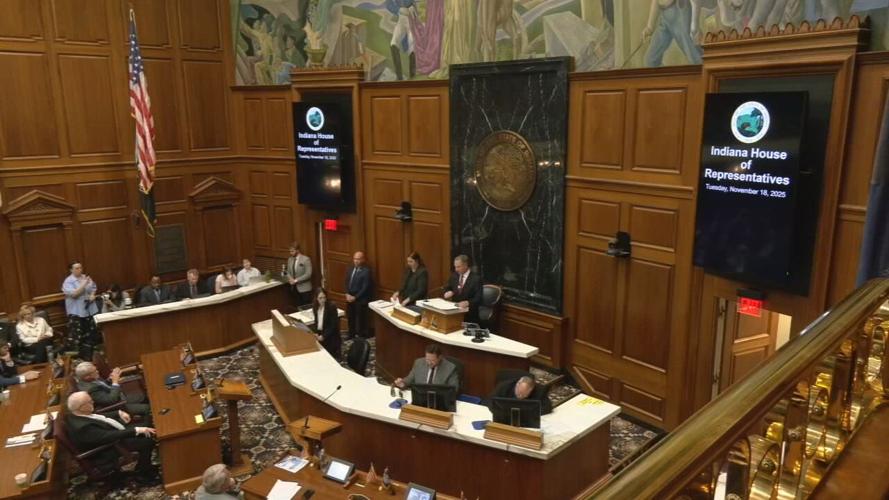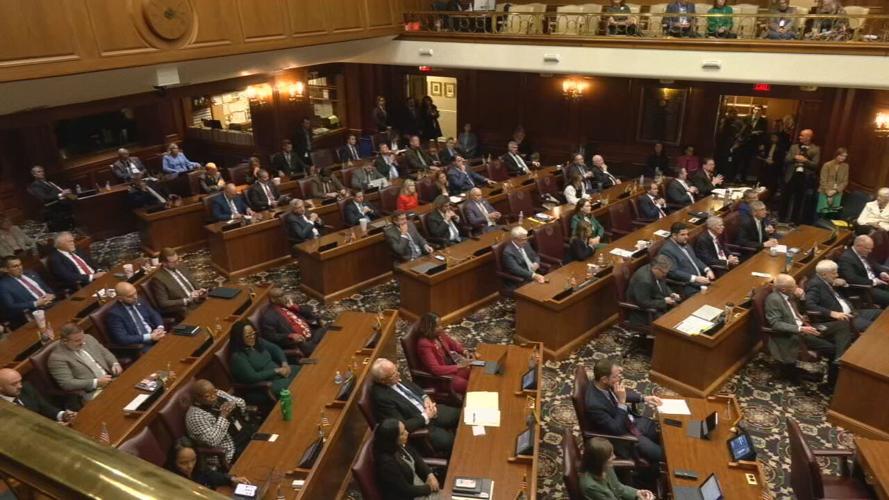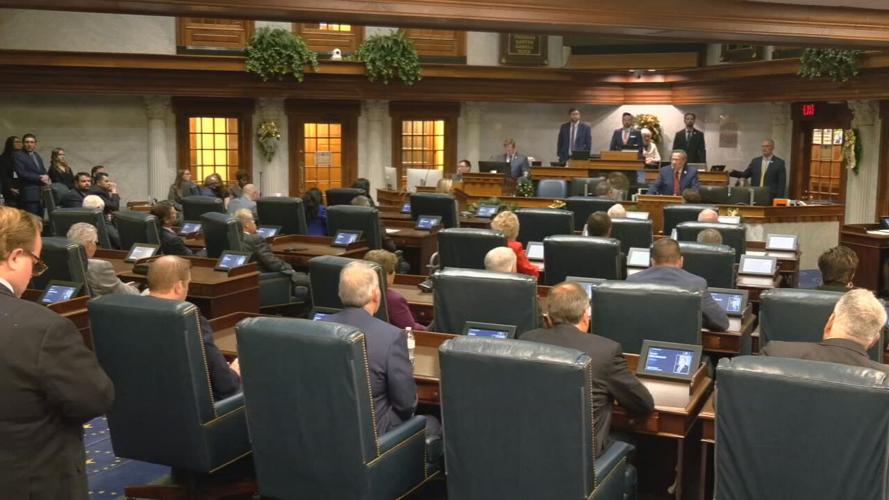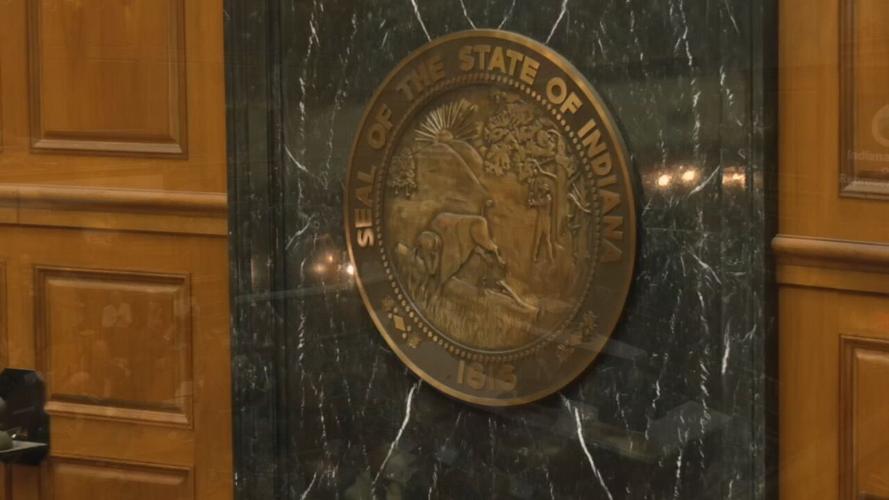INDIANAPOLIS, Ind. (WDRB) -- Lawmakers in Indiana's Republican-led House and Senate are sending different messages about mid-cycle redistricting as Gov. Mike Braun and President Donald Trump double down on their efforts to redraw the state's congressional maps.
The Republican-led Indiana Senate lacks the votes to reconvene for a special session to draw new congressional maps. But the House, where Republicans also hold the majority, said it does have the votes.
Last week, the state Senate said it would not be holding a special session in December because it lacked the votes to proceed with mid-cycle redistricting at Braun's request.
Tuesday, lawmakers were back at the Statehouse for Organization Day — a ceremonial day that occurs each year before the regular session in January — where the topic was brought up again. The day saw leadership from both chambers giving different messages.
In the Senate, senators voted 29-19 to convene next for the regular session in January despite looming pressure from the Trump administration and Braun, who want Republicans to use their supermajority in both legislative chambers to redraw the state's congressional boundaries before the end of the year.
While Indiana Republicans hold a supermajority in both chambers, Trump and Vice President JD Vance have pressed state lawmakers to redraw U.S. House districts to try to expand Republicans' current 7-2 edge over Democrats in the Hoosier state.
It is unclear whether the state House, which does have the votes to take up redistricting, will return in December. Speaker Todd Huston told lawmakers to keep the first two weeks of December open on their calendars. Yet in a statement, Huston said he hopes one day that Congress prohibits mid-cycle redistricting.
“But until that happens, Indiana cannot bury its head in the sand,” Huston said.
In a statement on X, Braun applauded Huston and implied the House would be back in December to vote on advancing his redistricting plans.
"Momentum is building and it's time now for our state senators to commit to showing up for work," the governor said.
Braun also railed against Senate President Pro Tem Rodric Bray, who said last week there weren’t enough votes to pass a redistricting proposal and that the chamber would not meet.
"Unfortunately, Sen. Rod Bray was forced to partner with Democrats to block an effort by the growing number of America First senators who wanted to have a vote on passing fair maps," his statement continued. "Now I am left with no choice other than to explore all options at my disposal to compel the State Senate to show up and vote.
"I will support President Trump's efforts to recruit, endorse, and finance primary challengers for Indiana's senators who refuse to support fair maps."
The state Senate voted 29-19 Tuesday to convene in January for the regular session instead of December for a special session.
Last month, Braun called for a special session to begin Nov. 3 to redraw congressional boundaries amid mounting pressure from the White House. Lawmakers initially agreed to meet in early December. That was before Bray's declaration last week that the votes weren't there to proceed and the special session was canceled.
"I called for our legislators to convene to ensure Hoosiers' voices in Washington, D.C. are not diluted by the Democrats' gerrymandering," Braun said in response at the time. "Our state senators need to do the right thing and show up to vote for fair maps. Hoosiers deserve to know where their elected officials stand on important issues."
Braun, a first-term governor, said Tuesday he had a call with Trump on Monday. He suggested in a statement that he is exploring ways to compel the Senate to return in December and take a vote. But his options remain unclear, other than maintaining political pressure on Republicans refusing to go along.
While states usually draw new district boundaries every 10 years with the census, Trump wants Indiana and other Republican states to create congressional maps that will favor Republican candidates and give them an easier path to maintain control of the U.S. House in the 2026 elections. The stakes are high since Democrats only need to flip a handful of seats and midterm elections usually favor the party opposite to the one in power.
Republican Sen. Greg Goode, whom Trump called out by name on social media over the weekend for resisting redistricting, was the victim of a swatting attempt on Sunday. Goode said in a statement Tuesday he will not take a public stance on the topic until he sees an official map.
More state senators have come out against redistricting this week, including a handful of Republicans calling for their party to focus instead on flipping a Democratic seat in northwest Indiana. The 1st Congressional District has been seen as a possible pickup for Republicans in recent years.
Braun's plan would redraw the state's nine congressional districts, focusing on two districts long targeted by Republicans, Districts 1 and 7 — both held by Democrats. The current congressional maps, completed in 2021, had already compressed Districts 1 and 7 in size.
Some Republican state lawmakers warned that midcycle redistricting can be costly and could backfire politically. Opponents were expected to challenge any new maps in court.
Previous Coverage:
Indiana governor defends redistricting plans after criticism from President Trump
Indiana lawmaker who opposed Trump's redistricting push is victim of a swatting
Indiana Senate lacks votes for mid-cycle redistricting, cancels December special session
Indiana Gov. Braun defends redistricting as protesters gather in New Albany
Indiana's special session to revisit congressional maps likely won't start Monday
Indiana lawmakers prepare for special session to revisit congressional districts
Indiana Gov. Mike Braun calls a special session to redraw congressional maps
Indiana Republicans lack votes to pass new congressional map
Copyright 2025 WDRB Media. All Rights Reserved. The Associated Press also contributed to this report.









